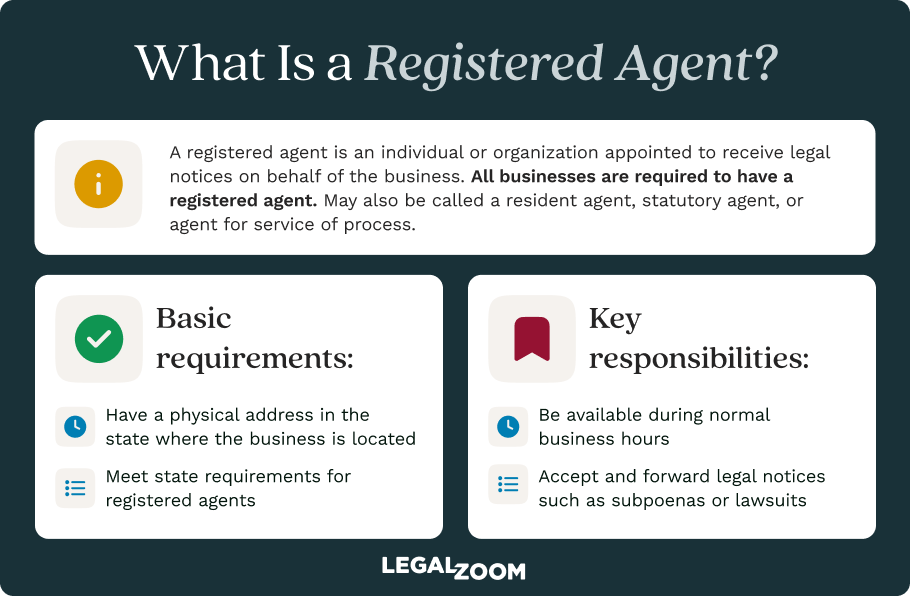Deciding to form an limited liability company (LLC) in New York can be exciting and daunting. With countless steps to navigate, from choosing the perfect name to complying with tax requirements, it's easy to get overwhelmed.
But fear not: This step-by-step LLC creation guide will walk you through the entire process, ensuring you're well-equipped to establish and grow your New York LLC confidently.
Why consider starting an LLC in New York
When you’re opening a business, you have to make a choice about how to structure your company. Limited liability companies have a lot to offer business owners, particularly if you’re planning you’re planning to operate a business with one or two owners.
Here’s a look at some of the top reasons you may opt to form as an LLC in New York.
Protection of personal assets
One of the biggest advantages of forming as an LLC is that your business is treated as a separate entity from you, the business owner. As such, your personal assets are protected from any liabilities accrued by your business. If your business falls into debt, or legal action is taken against your business, your personal accounts and properties won’t be at risk.
Tax benefits
When you form an LLC, you can choose to be taxed as a sole proprietorship, partnership, or corporation. LLCs taxed as a sole proprietorship or partnership benefit from pass-through taxation, meaning owners pay taxes on any business profits on their personal income tax return. This has the potential to save business owners a substantial amount of money since they can bypass the double taxation that corporations are subject to.
Management flexibility
Other types of business entities—like corporations—have strict rules around how they must be structured and managed. But LLCs afford much more flexibility, allowing business owners to choose how many members they have, how they conduct day-to-day operations, and how to distribute profits.
Possible disadvantages of starting an LLC in New York
The biggest potential drawback to forming an LLC in New York, rather than in another state, is the high costs associated with LLC formation in the state At $200, the cost to file articles of organization in New York is higher than most other states (with a few exceptions). Additionally, New York LLCs must pay a biennial fee of $9, as well as an annual filing fee that is based on the business’ gross income and may range anywhere from $25 to $4,500.
Another New York-specific requirement: new LLCs must comply with a Certificate of Publication law, meaning that owners forming a new LLC are required to publish notice of their LLC formation in two newspapers within 120 days of filing their initial articles of organization. This mandated step is also accompanied by an additional $50 fee.
Starting a business takes courage. LegalZoom makes sure the legal details don’t stand in your way, from the day you register until the day you retire.

Step-by-step guide to forming an LLC in New York
While forming an LLC in New York might be costly, it’s not necessarily difficult—though you will need to follow a number of specific steps to ensure you comply with all the state’s requirements.
Step 1: Name your New York LLC
You'll need to choose a business name to include in your articles before you can register your LLC.
Names must comply with New York naming requirements. The following are the most important requirements to keep in mind:
- Your business name must include the words Limited Liability Company, LLC, or L.L.C.
- Your name must be different from an existing business in the state. You can do a search on the New York Secretary of State's website to determine if a particular business name is in use. For name availability in New York, check this link.
- The business name cannot contain words used to name a government agency (i.e., State Department, CIA, FBI, Treasury, etc.)
- Certain restricted words (bank, lawyer, attorney, credit union, etc.) may require additional documentation and licensure paperwork.
If you aren't ready to register your LLC but are concerned your name might be taken by someone else, you can reserve it for a small fee. In New York, names may be reserved for up to 60 days by paying the fee and submitting the proper form to the state authority.
Step 2: Appoint a registered agent
A registered agent is a person or entity authorized to receive service of process and other official legal documents and notices on behalf of your LLC.
Typically, a registered agent is a person (including yourself or an employee of your LLC) or an entity that offers a registered agent service. But in New York, every LLC's "agent for service of process" is the New York Department of State. If your LLC is sued, the New York Department of State will accept legal documents and forward them to the LLC. All LLCs must give their name and address to the New York Department of State.
You can also appoint a registered agent as an additional agent to receive service of process for your New York LLC. They must meet the following criteria:
- Entities (or companies) must provide registered agent services.
- The agent must have an address in New York.
- The agent must be on-site and available to accept documents during regular business hours.
Although you can serve as your own registered agent, consider using a professional registered agent service for added benefits like privacy, cost savings, and peace of mind.

Step 3: Prepare and file articles of organization
The articles of organization is a document that officially establishes your LLC by laying out basic information about it. New York has a form (DOS-1336 Form) that individuals can access to file articles of organization.
Prepare articles of organization and file them with the New York State Division of Corporations to properly register your New York LLC. Though it sounds like a big job, that simply means filling out a relatively simple online form and submitting it. You can also send it by mail.
This step officially establishes your LLC as a legal entity and requires a $200 filing fee. There is a $5 paper copy fee if you do not file online.
To prepare your articles, you'll usually need the following information:
- Your LLC name
- The county in New York where the LLC will be located
- A New York address where the Secretary of State should mail legal documents to the LLC
- The signature of LLC's organizer
- The person and address forming the LLC is required to sign the articles
The New York articles of organization has an average processing time of seven business days. 24-hour, same-day, and 2-hour expedited processing services are also available for additional fees. Once you file your articles, the secretary of state will review the filing. If the articles are approved, the LLC becomes a legal business entity.
Step 4: Publish notice of your formation in two newspapers
As touched upon earlier in this article, New York has specific publication requirements for LLCs, which mandate publishing a notice of your formation in two designated newspapers for six consecutive weeks. This requirement must be fulfilled within 120 days after the LLC's articles of organization become effective.
LLCs are required to publish in newspapers designated by the county clerk in which the office of the LLC is located. Once published, the newspaper will provide an affidavit of publication. The Certificate of Publication, with the affidavits of publication of the newspapers and the $50 fee attached, should be submitted to the New York Department of State.
Note: Newspapers typically charge to publish these notices and the costs can vary greatly by county and publication. LLC owners should plan to budget anywhere from $600 to $1,200 for this service.
Step 5: Create an operating agreement
An operating agreement is a document that outlines the way your LLC will conduct business. New York requires LLC members to adopt an agreement within 90 days after filing the articles of organization.
Filing the operating agreement is not required, but it is an essential component of your business. Having a readily accessible, written operating agreement is helpful for various reasons, including settling disputes that may arise over financial agreements and other potential litigation. Without a comprehensive operating agreement, the courts make determinations based on state law, not necessarily what is in the LLC's and its members' best interest.
A New York LLC operating agreement can include, but is not limited to, the following:
- LLC's name and principal business address
- Duration of the LLC
- Name and address of the registered agent
- Purpose of the business
- Members and their contribution
- The way profits and losses will be divided
- Procedure for admitting new members, as well as outgoing members
- Management of the LLC
- Indemnification and liability clauses
- Voting rights of each member and the percentage of votes required to approve certain actions
To facilitate the drafting process, you might consider starting with a professionally designed NY LLC operating agreement template that outlines all the key elements. This approach provides a good starting point, but given the legal nuances and potential complexities—especially for multi-member LLCs—having an attorney review or help tailor the document can ensure that it fully protects every member's rights.
Building a business is enough work as it is. We'll help you start your LLC with confidence.

Step 6: Receive a certificate from the state
The state will issue you a certificate that confirms the LLC formally exists after the LLC's formation documents are filed and approved. It might take up to seven weeks to receive your certificate.
With your approved LLC, you can obtain an employer identification number (EIN), apply for business licenses, and open a business bank account.
7. Obtain an employer identification number (EIN)
The nine-digit EIN is assigned by the Internal Revenue Service to identify your LLC for taxes. You can obtain your EIN by mail or online through the IRS.
The purpose of an EIN is to assist with the following:
- File and manage taxes at the state and federal level
- Open a business bank account
- Hire employees
New York LLC costs
We’ve touched upon many of the costs associated with forming an LLC in New York throughout this article. While most of the initial formation costs are consistent, some ongoing costs for your LLC may vary. Here’s a general overview of common costs and price ranges for services associated with an LLC:
- Articles of organization filing fee: $200 + optional $5 paper copy fee
- Biennial fee: $9, to be paid every two years
- Annual filing fee: $25 to $4,500, depending on business gross income
- Newspaper publication costs: $600 to $1,200
- Certificate of publication: $50
- Registered agent fees (if using an additional agent or service): $49 to $300
- Reservation of business name (optional): $20
New York LLC tax considerations
As a New York LLC, adhering to various tax requirements is an obligation. These include:
- Federal income tax
- Sales tax
- Self-employment tax
- Payroll taxes
- Other state taxes, depending on your business' structure and activities
In New York, multiple-member limited liability companies assume the taxation status of a partnership, while a single-member limited liability company is treated as a disregarded tax entity, with members responsible for paying taxes on the LLC's income.
It’s important to note that certain cities in New York—such as New York City and Yonkers—impose an additional local income tax on their residents. This is a critical consideration for any LLC owners who live in these cities, since LLC income is reported on your personal income tax return.
The sales tax rate in New York is 4%, with counties and municipalities adding their own taxes, resulting in combined rates of 8% or more in some jurisdictions. Be sure to stay informed about the tax requirements and rates specific to your industry and location and the frequency of sales tax remittance.
Business licenses and permits in New York
While there’s no statewide general business license requirement in New York, you may still need to get one at the local level. You can check with your city or county clerk’s office to determine what type of license, if any, is required.
Additionally, you’ll likely need several other types of licenses and/or permits to operate your LLC legally. The exact number and types of licenses needed will vary depending on what industry you are in and your intended business operations. You can use the New York business wizard tool to guide you through this process, but here’s are a few examples of common permits and licenses that some businesses need:
- Sales tax permits. If your business involves selling goods or providing services to the public, you’ll likely need to apply for a permit to collect sales tax.
- Occupational licenses and permits. If you work in an industry that requires professional certification or licensing—such as the medical field, real estate, cosmetology, automotive repair, or accounting, to name just a few—you’ll need to obtain these and renew them as required by law.
- Construction and land use permits. If you’re building a storefront, upgrading an existing business structure, or adding signage, you may need a permit.
- Federal licenses and permits for regulated industries. If you work in certain industries—like agriculture, aviation, firearms sales, meat production, or transportation—you could require special licensing from the federal government in order to operate legally.

What to do after starting your New York LLC
Once you have established your New York LLC, there are numerous subsequent steps to solidify your business' foundation.
Open a business bank account
Opening a separate business bank account is crucial for separating personal and business finances, simplifying tax filings, and adding credibility when dealing with clients and vendors.
Set up compliance reminders
There are a lot of compliance requirements to keep up with for your New York LLC, from the biennial statement required by the state every two years, to the annual filing fee, to the regular renewal of business licenses, permits, and professional certifications. It can be helpful to set up calendar reminders for all of these to avoid missing a deadline, which may subject you to penalties and fees.
LegalZoom offers compliance services for business owners in New York that can make it easier to keep on top of these renewals and filings, with personalized support from experienced specialists.
Protect your brand
Part of growing a successful business is building a strong brand. Consider trademarking things like your name or logo to protect your image and prevent other businesses from mimicking your company’s identity and piggybacking off its success.
Consider ongoing legal support
While an LLC helps protect your personal assets from business debts and liabilities, they can’t protect you from every issue that might happen with your business. Seeking the support of a business lawyer can be helpful as your business grows and legal problems arise.
LegalZoom’s business attorneys are available to guide you through a wide range of business services, from initial set-up concerns, to contract review, and hiring and compliance issues.
Registering an out-of-state LLC in New York
What if you formed your LLC in another state, but want to expand to do business in the state of New York?
To do this, you’ll need to file an Application of Authority with the New York state department. New York State also requires foreign LLCs (LLCs formed in other states) to provide a Certificate of Existence—sometimes called a Certificate of Good Standing—from their current state’s Secretary of State office. The cost of filing in New York is $250.
Comparing LLCs in New York to LLCs in other states
New York might not be the best state for your new business, depending on what your priorities and goals are. If you have flexibility of location, other states could be just as enticing—if not more so—than New York, so it’s important to consider all the pros and cons of starting an LLC in the state of your choosing.
- New York vs. New Jersey: The cost to file articles of organization in New Jersey is $125, which, while lower than New York, is still higher than average compared to other states. If startup costs are a major concern for you as a business owner, New Jersey could be an attractive alternative to New York, especially considering its close proximity.
- New York vs. Delaware: Delaware has a few unique benefits when it comes to LLCs. For starters, it is one of only four states that allows LLCs owners to file anonymously and keep their names off the public record. It also has a lower initial filing fee ($110 vs. NY’s $200), though owners pay a rather hefty annual renewal fee of $300.
- New York vs. Texas: You’ll pay $300 to file your articles of organization in Texas, but you’ll be rewarded with $0 annual fees on your LLC. If you can shoulder the higher startup cost, you could save a substantial amount over the life of your business by forming in the Lone Star State.
Start an LLC in Any State
LegalZoom can help you file your state's formation paperwork for as little as $0 + state filing fees.

Why choose LegalZoom to create your New York LLC
By now, you’ve likely deduced that starting an LLC in New York involves quite a few steps, not to mention a bunch of ongoing regulation paperwork.
LegalZoom's Business Formation Services help make the process easier. Our experts can help you through every step in the process, from reserving your business name, to keeping tabs on business license renewals and fees, and we’ll handle the paperwork and tracking for you.
FAQs about New York LLCs
How long does it take to form an LLC in New York?
The amount of time it takes to form an LLC in New York State will vary depending on how prepared you are to file and what method you use to file your articles of organization. With online filing, the process can be as quick as 7 days, but you should plan to add several weeks to the process if you choose to file by mail.
What is the New York LLC publication requirement?
By law, all new LLCs formed in New York state must publish notice of their LLCs formation in two newspapers for six consecutive weeks, with one being daily and the other weekly located in the same county as their principal address or registered agent. Arizona and Nebraska are the only other states that share this requirement for LLCs.
Can I open a New York LLC by myself?
You can legally register an LLC in New York City by yourself, however, you should consider utilizing a lawyer to ensure that your articles of organization and operating agreement are properly completed and enforceable. The New York Department of State provides great resources on registering an LLC in New York City.
Can I be my own registered agent in New York?
In New York, the Secretary of State is the default agent for service of process for LLCs. When you file your Articles of Organization, you must provide an address to which the Department of State will forward any legal papers it receives on behalf of your LLC.
While the Department of State is your automatic registered agent, you have the option to appoint a separate registered agent in addition to the state. This is where you can designate yourself or another person or company. You can appoint yourself to act as your own registered agent in New York, but it may be beneficial to appoint someone else to act as your agent or hire a registered agent service to complete the job. Serving as a registered agent requires you to be physically present to receive service of process during regular business hours, which could make it difficult for you to conduct other necessary functions related to running and growing your business.
If you do choose to serve as your own registered agent, remember that you’ll need to meet all of the legal requirements listed below:
- Be a resident or a registered business entity in New York
- Be legally responsible for being available to accept legal documents
- Maintain a physical address in New York
- Forward received documents
- Ensure adherence to state requirements
- Serve as the point of contact for legal actions or inquiries.
Do New York LLCs file annual reports?
Some states require LLCs and other businesses to file annual reports to stay in good standing. These reports include basic information about the business such as its name, registered agent, principal address, and information about the owners and managers.
New York doesn’t require a report annually, but it does require a biennial report every two years, which includes similar information. You can learn more about what’s contained in a New York biennial report on the New York Department of State website.
Rudri Bhatt Patel contributed to this article.



